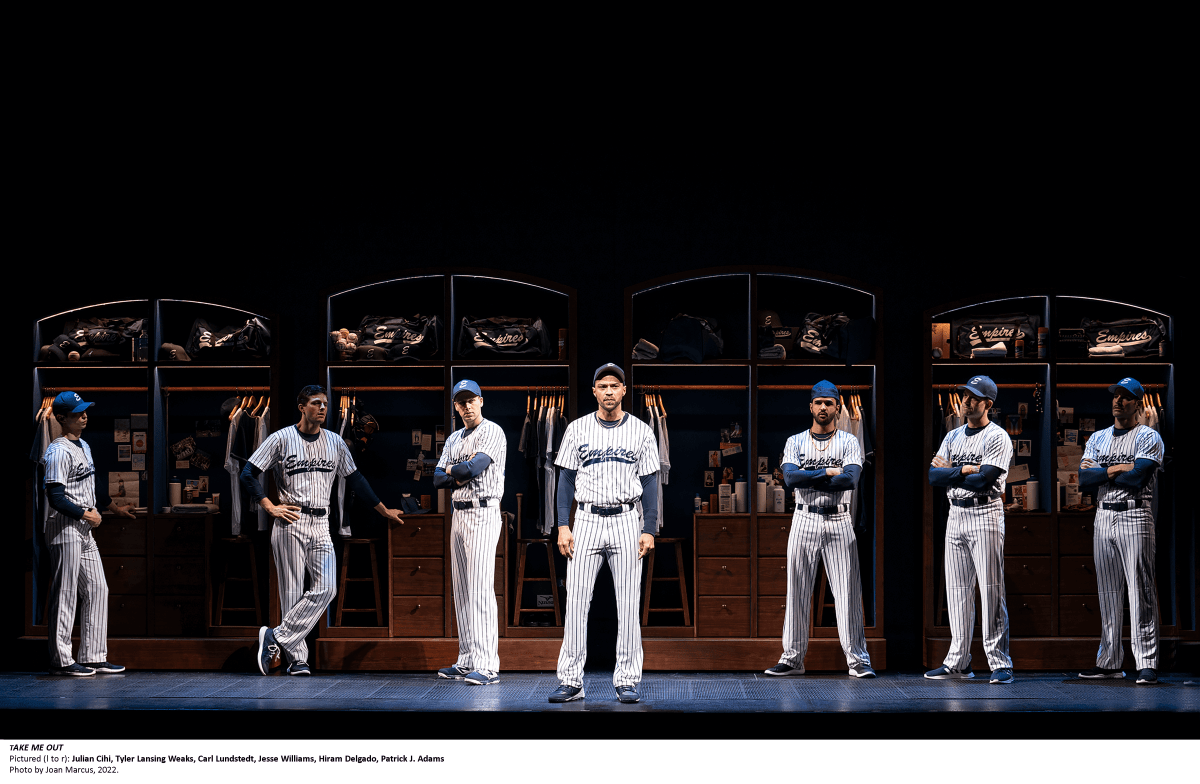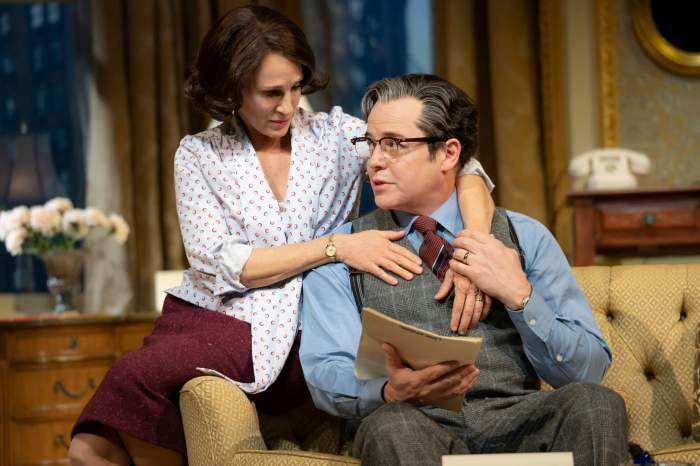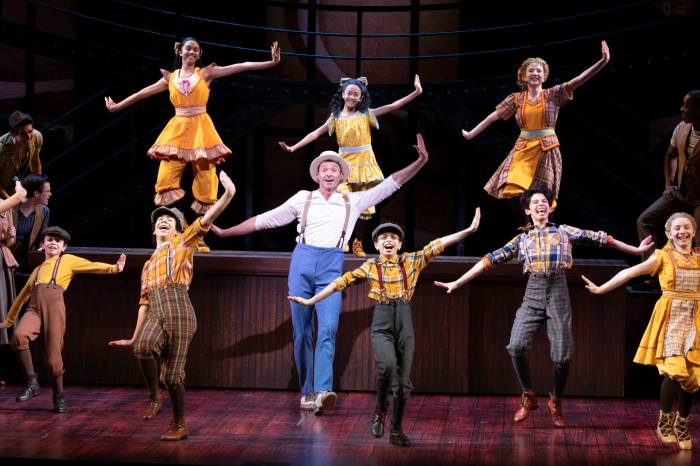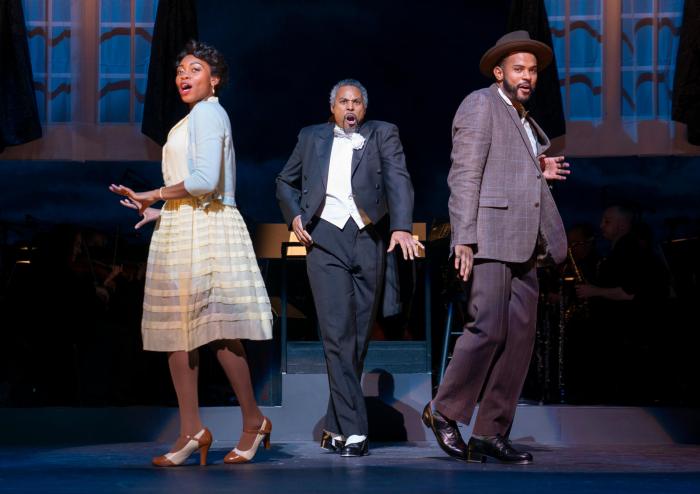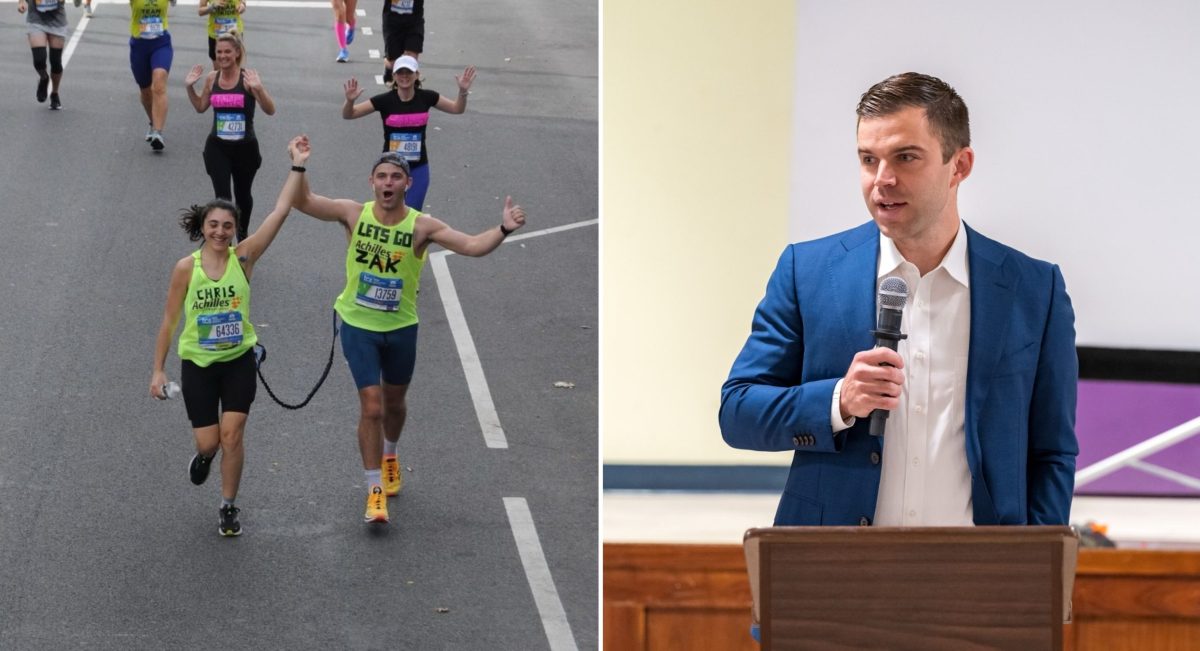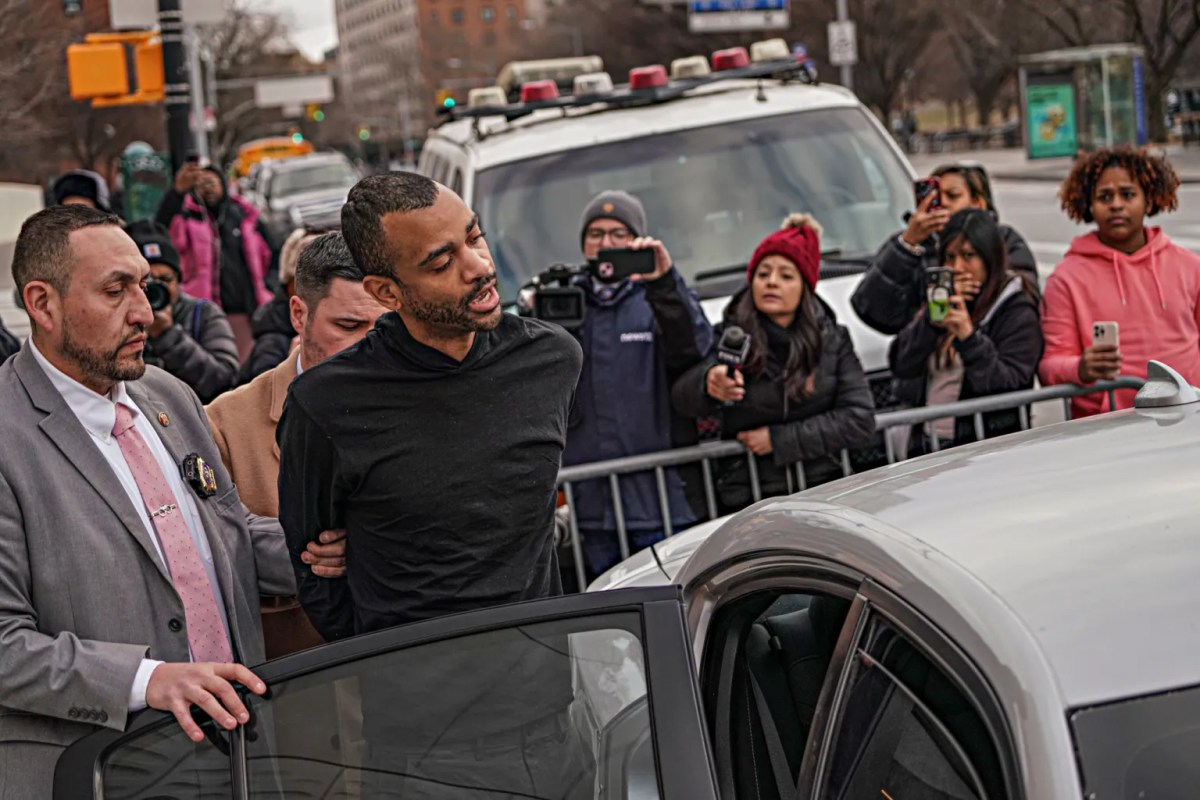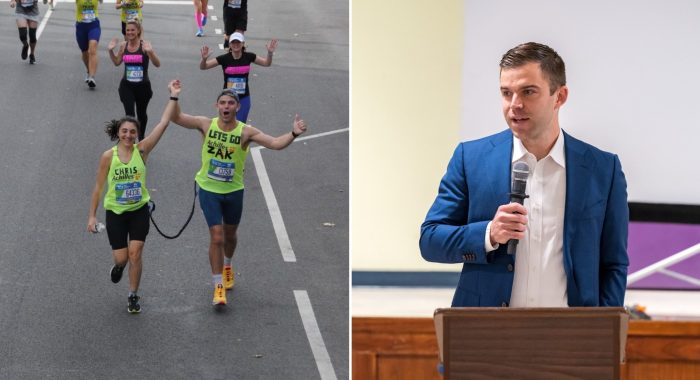A lot has changed in the world in the 20 years since the Off-Broadway premiere and subsequent Broadway transfer of “Take Me Out,” Richard Greenberg’s all-male drama about the epic consequences of a Derek Jeter-like professional baseball player coming out as gay. Notwithstanding, “Take Me Out” remains the same play, somewhat overlong and sensationalistic but absorbing and heartfelt, especially as demonstrated by the excellent Broadway revival produced by Second Stage.
The play’s acclaimed original production kicked the careers of multiple artists into high gear, including Greenberg (whose comic dramas continue to be produced regularly in New York), Joe Mantello (who went on to direct a show called “Wicked,” among many others), Daniel Sunjata (who soon joined Meryl Streep in “The Devil Wears Prada”), and Denis O’Hare (who became a prominent character actor both onstage and onscreen).
Set in 2002, “Take Me Out” is framed in flashback, adding an aura of mystery, with heated lock room scenes alternating with confessional monologues that explore masculinity, sexuality, race, class, and, of course, baseball. The title is multilayered, referring to coming out of the closet, attacking someone, and assumedly also the song “Take Me Out to the Ballgame.”
It is primarily narrated by Kippy (Patrick J. Adams), who functions as a sort of Nick Carraway of “The Great Gatsby” in analyzing his pal, the self-assured hotshot player Darren Lemming (Jesse Williams). Early on, we witness the press conference where Darren reveals his sexuality without any apparent hesitation.
After a losing streak, the team is joined by an uneducated rookie pitcher from the South (Michael Oberholtzer), who sparks drama by making racist and homophobic comments about his teammates, leading to a suspension, soul-searching and angst, provocation, and a violent encounter.
A whole other chunk of the play follows the unlikely friendship between Darren and Mason (Jesse Tyler Ferguson), a socially-awkward, gay financial planner who suddenly falls head-over-heels in love with baseball. Even you don’t care for the rest of “Take Me Out,” Mason is adorable and irresistible, especially his philosophic and romantic musings/monologues on baseball.
According to Mason, “baseball is better than democracy – or at least democracy as it’s practiced in this country – because unlike democracy, baseball acknowledges loss.” Twenty years ago, this laugh line brought to mind the contested 2000 presidential election. Today, it strikes an even stronger reaction from the audience, and you can probably imagine why.
But truth be told, “Take Me Out” is probably best known for a scene in which most of the cast appears nude while taking a shower in the locker room, in addition to other scenes with full nudity. This is probably the reason why audience members are required to leave their cell phones in locked Yondr pouches during the production.
Scott Ellis has directed a solid, straightforward production that hits upon raw tensions in each scene, with Ferguson serving as comic relief. The cast is uniformly strong, so much so that they actually transcend the play’s least believable scenes, with standouts including Williams’ sharp and enigmatic Darren, Adams’ compassionate Kippy, Brandon J. Dirden’s fierce and swaggering Davey, and Ferguson’s wonderfully fumbling and affectionate Mason. O’Hare won a Tony Award for his performance as Mason in the original production, and it wouldn’t surprise me at all if Ferguson does too.
“Take Me Out” runs through May 29 at the Hayes Theater, 240 W. 44th St., 2st.com.



